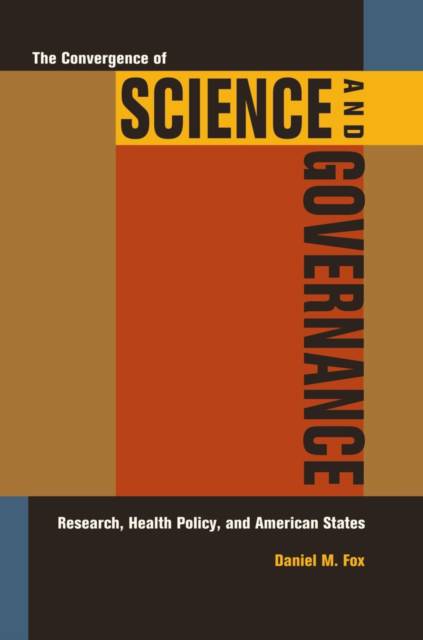
- Afhalen na 1 uur in een winkel met voorraad
- Gratis thuislevering in België vanaf € 30
- Ruim aanbod met 7 miljoen producten
- Afhalen na 1 uur in een winkel met voorraad
- Gratis thuislevering in België vanaf € 30
- Ruim aanbod met 7 miljoen producten
Zoeken
The Convergence of Science and Governance
Research, Health Policy, and American States
Daniel M Fox
Hardcover | Engels
€ 62,95
+ 125 punten
Omschrijving
Daniel M. Fox gives an incisive assessment of the critical collaboration between researchers and public officials that has recently emerged to evaluate the effectiveness and comparative effectiveness of health services. Drawing on research as well as his first-hand experience in policymaking, Fox's broad-ranging analysis describes how politics, public finance and management, and advances in research methods made this convergence of science and governance possible. The book then widens into a sweeping history of central issues in research on health services and health governance during the past century. Returning to the past decade, Fox looks closely at how policy informed by research has been made and implemented in public programs that cover pharmaceutical drugs in most American states. This case study illuminates how politics has informed the questions, methods, and reception of research on health services, and also sheds new light on how research has informed politics and public management. Looking toward the future, Fox describes the promise, as well as the fragility, of the convergence of science and governance, making his book essential reading for those struggling to revise health care in the United States over the next several years.
Specificaties
Betrokkenen
- Auteur(s):
- Uitgeverij:
Inhoud
- Aantal bladzijden:
- 182
- Taal:
- Engels
Eigenschappen
- Productcode (EAN):
- 9780520262386
- Verschijningsdatum:
- 17/02/2010
- Uitvoering:
- Hardcover
- Formaat:
- Genaaid
- Afmetingen:
- 229 mm x 227 mm
- Gewicht:
- 394 g

Alleen bij Standaard Boekhandel
+ 125 punten op je klantenkaart van Standaard Boekhandel
Beoordelingen
We publiceren alleen reviews die voldoen aan de voorwaarden voor reviews. Bekijk onze voorwaarden voor reviews.








